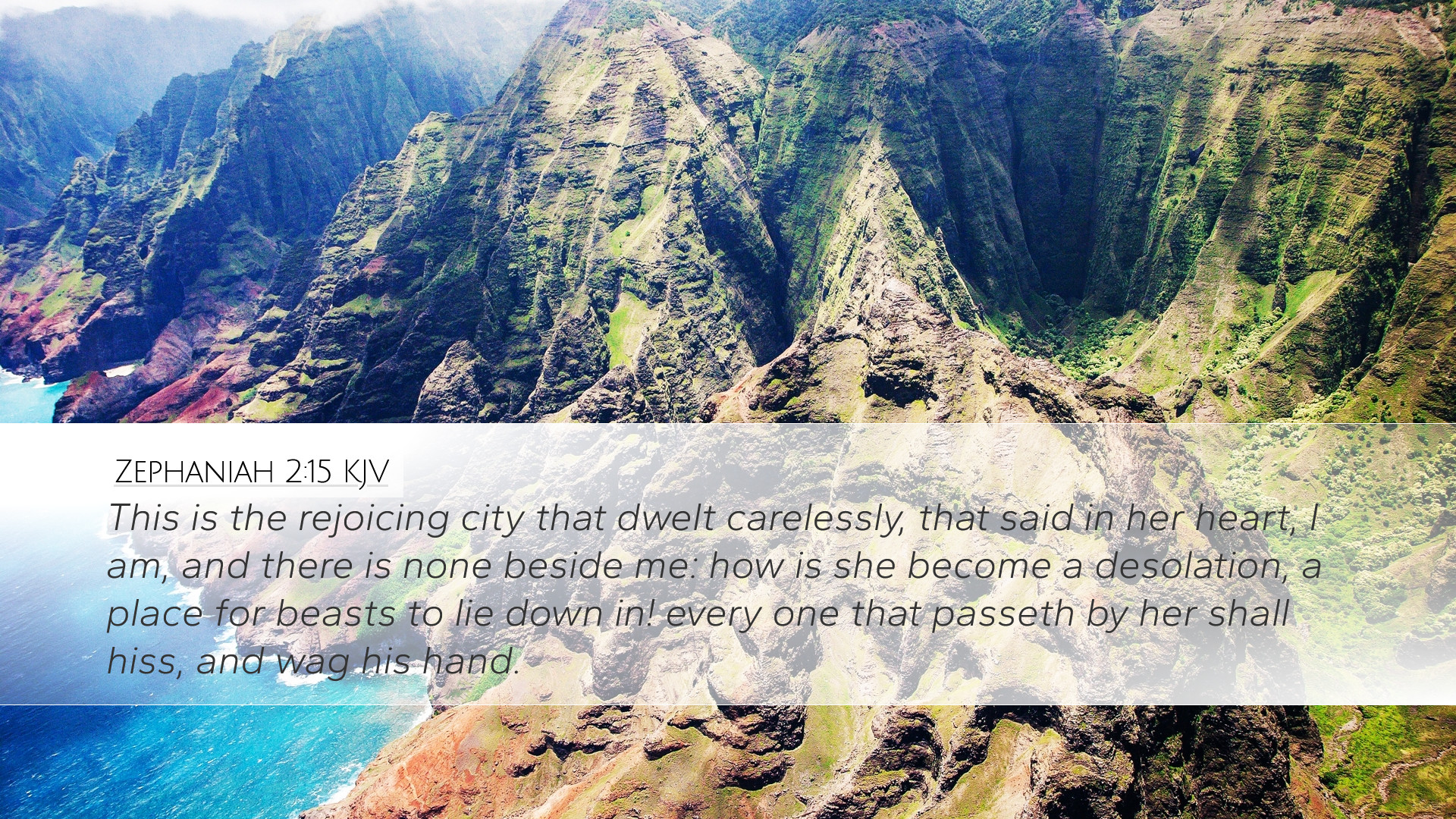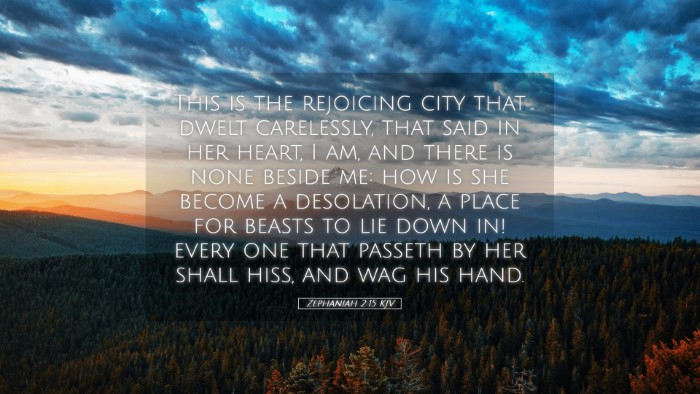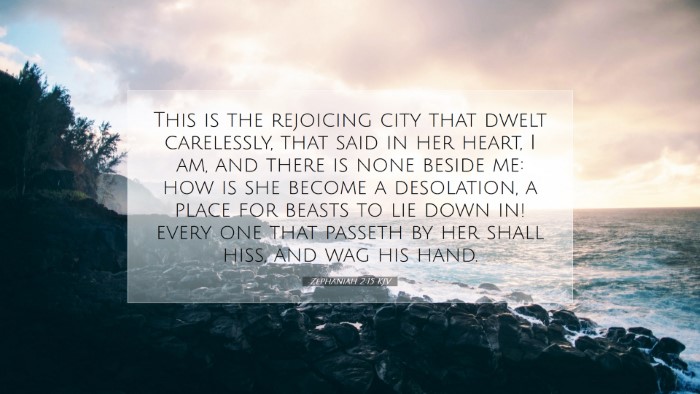Old Testament
Genesis Exodus Leviticus Numbers Deuteronomy Joshua Judges Ruth 1 Samuel 2 Samuel 1 Kings 2 Kings 1 Chronicles 2 Chronicles Ezra Nehemiah Esther Job Psalms Proverbs Ecclesiastes Song of Solomon Isaiah Jeremiah Lamentations Ezekiel Daniel Hosea Joel Amos Obadiah Jonah Micah Nahum Habakkuk Zephaniah Haggai Zechariah MalachiZephaniah 2:15
Zephaniah 2:15 KJV
This is the rejoicing city that dwelt carelessly, that said in her heart, I am, and there is none beside me: how is she become a desolation, a place for beasts to lie down in! every one that passeth by her shall hiss, and wag his hand.
Zephaniah 2:15 Bible Commentary
Commentary on Zephaniah 2:15
Zephaniah 2:15 states, "This is the rejoicing city that dwelt carelessly, that said in her heart, I am, and there is none beside me: how is she become a desolation, a place for beasts to lie down in! Everyone that passeth by her shall hiss, and wag his hand."
Overview
This verse serves as a pivotal statement regarding the fate of Nineveh, the capital of Assyria, portraying its fall from a position of pride and self-sufficiency to utter desolation. It encapsulates Zephaniah's prophetic warning against the backdrop of divine judgment.
The Context of Zephaniah
Zephaniah's prophecy arises amidst a tumultuous period for Judah and the surrounding nations. The prophet addresses not only the people of Judah but also their enemies, emphasizing the inevitability of God's judgment. The Assyrians, particularly Nineveh, exemplified extreme arrogance and moral corruption. Their downfall is a reminder of the transient nature of worldly power.
Detailed Insights
-
Carelessness and Pride
Matthew Henry emphasizes the phrase "dwelt carelessly," indicating a state of complacency and forgetfulness regarding divine authority. The city of Nineveh, despite its grandeur, lived in a bubble of false security, drawing upon its military might and wealth.
-
Self-Sufficiency
Albert Barnes draws attention to the arrogance encapsulated in the declaration, "I am, and there is none beside me." This reflects a sense of invulnerability and pride that isolates her from the fear of God. Such assertions are characteristic of nations or individuals who disregard accountability to the Divine.
-
Divine Judgment
Adam Clarke articulates that the desolation faced by Nineveh was not merely a political defeat but a direct outcome of divine judgment. In its fall, it became "a place for beasts to lie down in," illustrating the total collapse of civilization.
-
The Reaction of Onlookers
The reaction of those who pass by and hiss symbolizes derision and contempt for a once-mighty city brought to ruin. This external perspective illustrates the broader implications of Nineveh's downfall – a cautionary tale for all nations and individuals who turn away from God.
Theological Implications
This passage draws attention to significant theological themes relevant to contemporary readers:
-
The Nature of God’s Judgment
The swift transition from pride to ruin reflects God's sovereign will. No nation can escape the consequences of turning away from divine principles.
-
Human Complacency
Carelessness signifies a spiritual malaise that leads to destruction. The contemporary application invites reflection on the complacency present in our own lives, churches, and nations.
-
Hope Amidst Despair
Although the verse depicts judgment, there remains an underlying call to repentance. God’s judgment is always coupled with a chance for redemption and restoration.
Conclusion
Zephaniah 2:15 serves as a profound reminder of the fragility of human pride and the certainty of divine justice. For pastors, theologians, and students of Scripture, this verse calls for a deep examination of our relationship with God, urging vigilance against the perils of complacency while offering hope in the transformative power of repentance and grace.


